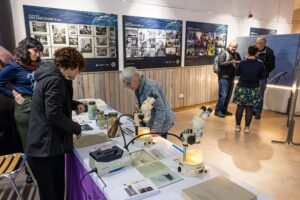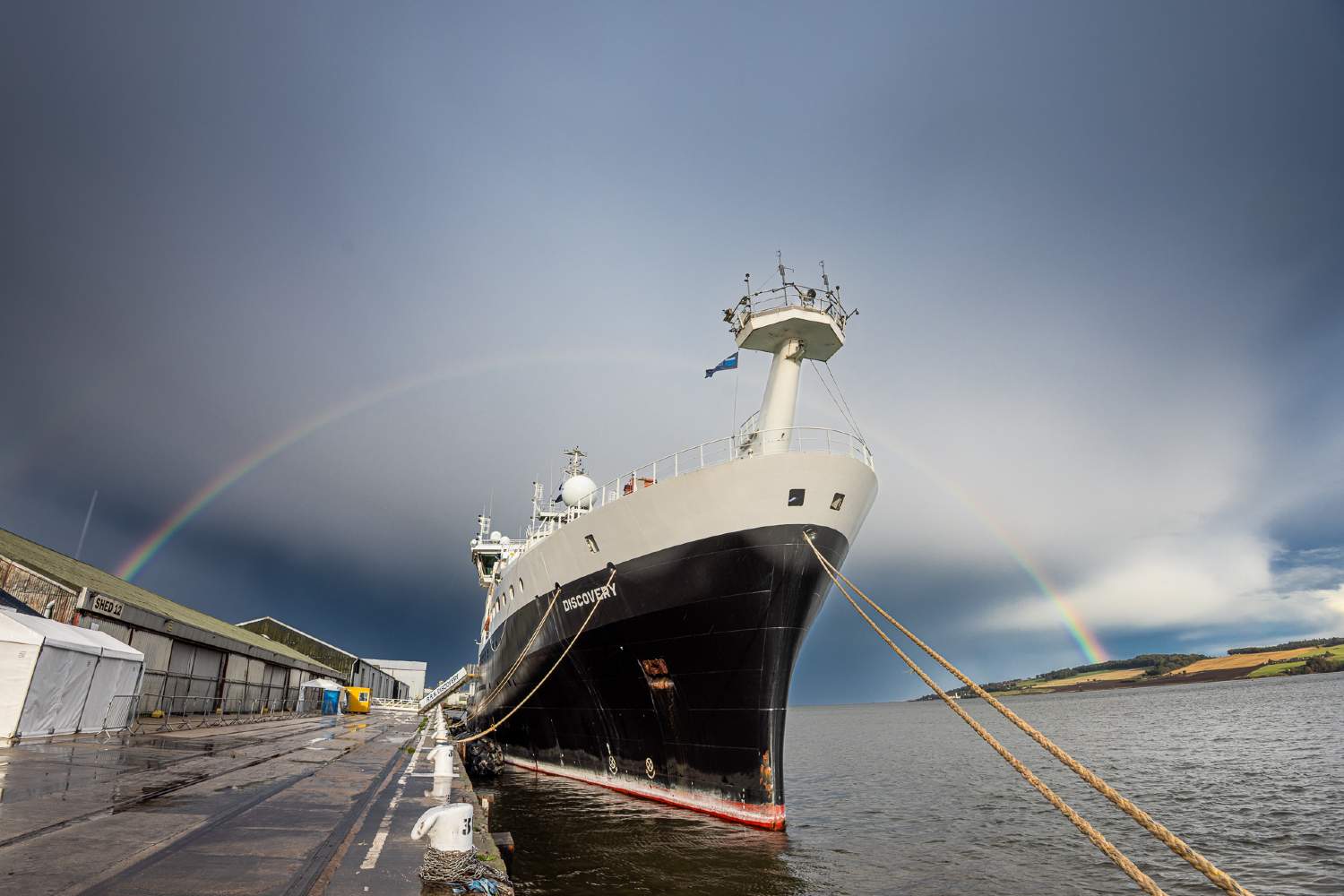The legacy of UK marine science began in 1925 when the Royal Research Ship (RRS) Discovery became the first British science ship.
Since then, the UK has pioneered research and exploration to improve our understanding of Earth’s oceans.
This includes:
- the migration patterns of whales
- the effects of climate change
- how ocean conditions affect our weather
Pioneers of marine research
This year also marks 60 years of the Natural Environment Research Council (NERC).
The council has funded pioneering environmental marine research from early oceanographic surveys to today’s real-time environmental monitoring and autonomous data collection.
Leader in offshore wind energy
NERC’s investment has helped establish the UK as a world leader in offshore wind energy and created over 32,000 jobs.
It continues to advance our understanding of fundamental ocean processes that build climate resilience and support sustainable coastal economies.
To mark this celebration, the fourth and current state-of-the art RRS Discovery was moored in Dundee close to its original namesake which is permanently docked at Discovery Point.
Boaty McBoatface autonomous vehicle and a glider onboard RRS Discovery. Credit: National Oceanography Centre
A celebration of marine science
The event was hosted by the National Oceanography Centre (NOC) in collaboration with:
- Dundee Heritage Trust
- Marine Alliance for Science and Technology Scotland
- Scottish Association for Marine Science
- NERC
- UK Research and Innovation
The programme of events over the weekend highlighted the enduring legacy of the Discovery expeditions and the vital role of ocean science in shaping a sustainable future.
The history of RRS Discovery
The original RRS Discovery set sail from Falmouth in September 1925, beginning a two-year voyage that included:
- Ascension Island
- South Africa
- the Southern Ocean
The latest RRS Discovery, launched in 2012 and funded by NERC, continues the legacy through projects including the following.
AtlantiS
Led by NOC, this project investigated the impact of climate and environmental change on marine ecosystems and society.
eSWEETS3
Led by the University of Liverpool, this project explored the effects of floating wind farms on ocean physics, biology, and chemistry.
Both projects demonstrate the critical role of ocean science in addressing climate change, sustainable energy, and marine health.
Engaging the public

Marine science exhibition. Credit: National Oceanography Centre
The five-day event welcomed thousands of families and schools to Discovery Point and aboard the current RRS Discovery.
The weekend programme featured:
- a special exhibition on the history of the four RRS Discovery ships
- interactive science engagement stands
- talks from oceanographers and marine professionals
- activities led by Dynamic Earth’s Learning and Engagement Team
Professor Louise Heathwaite, Executive Chair of NERC, said:
This wonderful public engagement event attracted more than 2,600 families who had the opportunity to tour research ships and learn more about environmental research and our rich history of scientific exploration.
We hope some of those who visited might be inspired to consider a future career in research.



